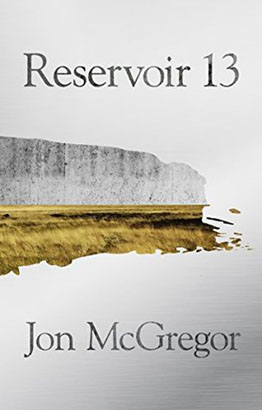One of the most horrific of human betrayals must be the abuse of a child by a parent. Not only does this warp a young person's development, but normalizes cruelty to the degree where a child might then inflict it upon others and themselves. Debut novel “My Absolute Darling” by Gabriel Tallent gives a startlingly new and heart-wrenching look at the way a child is made to feel dependent upon her father's abuse. Fourteen year old Julia is raised by her single father Martin in a rundown house on the California coast. The only other familial contact she has is with her decrepit but kindly grandfather, Daniel. She goes by the nickname 'Turtle' but Martin more often affectionately calls her 'Kibble' or 'My Absolute Darling.' Martin is very scholarly and often reads philosophy, but he’s prone to paranoia as he has extreme survivalist beliefs. Their shack is filled with an arsenal of weapons which he frequently trains Turtle in using. She’s a very adept student who can load, clean and accurately fire a range of guns. As Turtle prepares to go to high school and grows older, their isolated home life becomes more strained and intolerable. This is a mesmerizing story full of courage, dramatic scenes and insight into the formation of a severely damaged young individual’s identity.
Tallent has a curious writing style which treads somewhere between a hyper-realized reality and an elevated intellectual drama. The story is highly attuned to the natural world. Frequently scenes are filled with rich descriptions of the plants and animals that surround their rural house. This reminded me of the kind of detail found in recent novel “The Sport of Kings” by C.E. Morgan or the pastoral scenes found in books by Émile Zola. Turtle’s psychology is presented in a complex way to show her skewed perspective of the world that’s been tainted by Martin’s oppositional personality and overbearing ideology filled with hate towards women. For instance, when she sees a well-meaning girl at her school she thinks: "I will grow up to be forthright and hard and dangerous, not a subtle, smiling, trick-playing cunt like you." The blunt unmediated reality of her inner and outer life are so forcefully presented, yet the trajectory of her story and interactions with others feel more akin a highly stylized drama. The closest comparison I can make is to the film ‘The Night of the Hunter’ which pays close attention to the details of nature and children’s loss of innocence under an insidious masculine figure. It’s both concretely realistic and saturated by an elegiac filter that makes it feel mythic.
The most fascinating way the novel deviates from being truly naturalistic is in the social interactions Turtle has with a couple of boys she meets on a hike. Brett and Jacob are just a little older than her, yet they are so learned that they frequently drop literary allusions into their discussions and reference classic literature. This is a consistent trope throughout the novel with Martin who often applies philosophical stances to their situations or even how he names a hated spider that inhabits their house Virginia Woolf. It’s through the friendship that Turtle strikes up with Brett and Jacob that the reader is keyed into a whole level of society surrounding her which Turtle is excluded from. The landscape which felt totally wild, untamed and impoverished through Turtle’s eyes reveals itself as an ordered and privileged place filled with affluent houses and valuable property. This realization forcefully smacks the girl: "Turtle has always known that other people grew up differently than she did. But she had, she thinks, no idea how differently." It’s tremendously powerful how the author presents this shift, yet it also felt slightly jarring. Brett and Jacob’s characters are so idiosyncratic that it’s difficult to believe the bond they hurriedly form with the aloof and combative figure of Turtle.
The greatest power of this novel is in its evocation of Turtle’s development and conflicted psychology. Her father insults her horrifically leading her to hate her personality, her intellect and her body. At one point she thinks "the slit is illiterate - that word undresses her of all that she has knotted and buckled up about herself; she feels collapsed – every bitter, sluttish part of her collapsed and made identical to that horrible clam." Yet she thinks his behaviour is justified and she mentally defends him: "she thinks, you are hard on me, but you are good for me, too, and I need that hardness in you.” Martin alternates physical, mental and sexual abuse with declarations of how much he values her and how they stand as a pair in opposition to the world. This makes Turtle feel that she has no purpose or value outside of this enclosed severely dysfunctional relationship. The author shows how this inner conflict plays out through torturously tense scenes and how painful it is for Turtle to imagine a life without her father’s dominant presence: "She thinks, I don't even know what all right would look like. I don't even know what that would mean."































